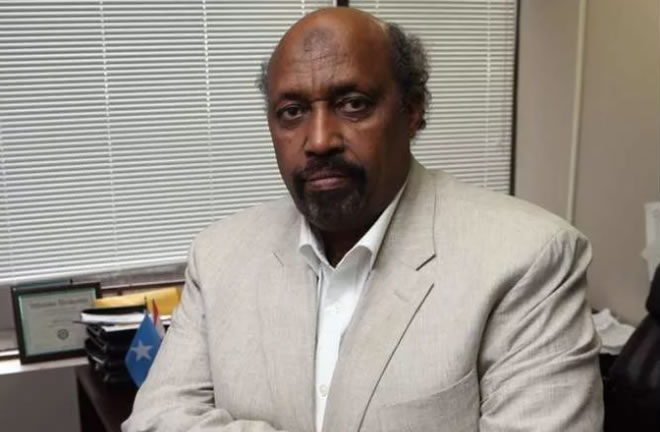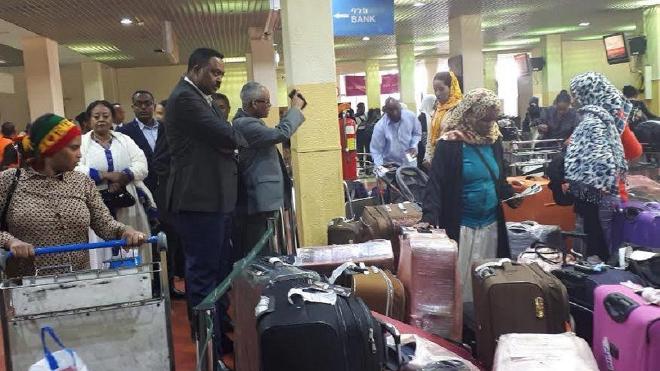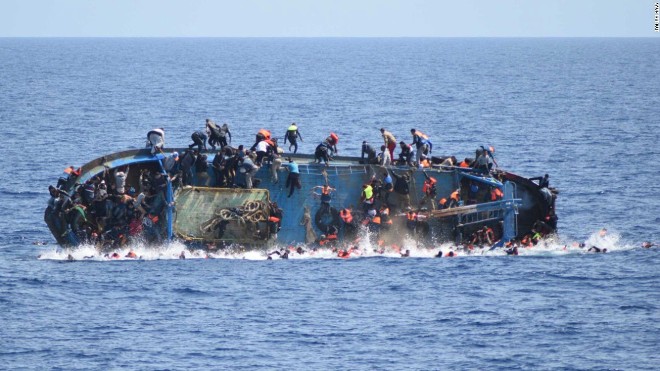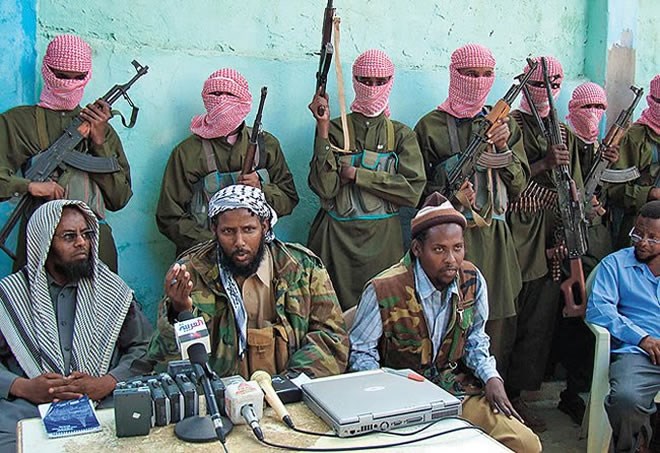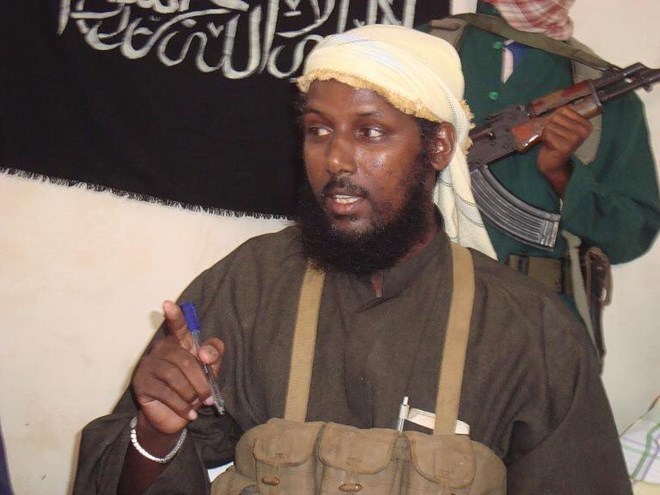The problem: a child has been suspended or expelled and the parent has exhausted every avenue to come to a solution to get the student back to class. Often, the parent doesn’t speak English or French and can’t afford a lawyer. Enlisting the Somali Centre for Family Services, where Karod is the executive director, is sometimes the parent’s last shot.
Across North America, researchers agree that black students are disproportionately expelled or suspended from school compared with their white counterparts. It has long-term effects, from unemployment to gang involvement and high rates of incarceration, and has been dubbed the “school-to-prison pipeline.”
This week, the Somali Centre for Family Services, which offers services to a broad range of ethnicities, was awarded a $100,000 grant from Legal Aid Ontario to offer legal representation, advocacy or legal education to black students who are in conflict with the education system.
“When kids are suspended, suspended, suspended, they drop out. Then they go to the illegal (criminal) system. And at the end of it, we all pay,” says Karod.
Legal Aid Ontario, a publicly funded corporation that provides legal assistance to low-income individuals, has been consulting with community agencies to develop a strategy for serving racialized communities.
“One of the things we have learned is that the parents of black and other racialized students don’t know what their rights are,” said Kimberly Roach, Legal Aid’s policy counsel on the strategy.
Among those rights: students have the right to be represented by a lawyer at both suspension and expulsion hearings, the right to call witnesses and present their side of the story, the right to cross-examine witnesses, and the right to explain if there are other things the school board needs to consider.
Last year, the Supreme Court’s Jordan decision, which imposed strict time frames to ensure the right to a speedy trial, issued a challenge to the entire legal system to improve resources and create structural changes, said Attorney General Yasir Naqvi, who announced the grant.
This project tackles that at a local level, he said. “We’re talking about resolving conflicts and keeping kids out of the criminal justice system.”
Carl James, the Jean Augustine chair in education, community and diaspora at York University, has recently finished a report on the schooling of black students in the Greater Toronto Area.
“In some of the stories we’ve heard, the parents say the teachers or the principal will have discussions with the kids, but the parents will only hear about it afterwards,” he said. “Anything that will bring parents knowledge about the school system and build a relationship with the school will be useful. And I think it will be useful for the schools.”
While school boards in Ontario collect data on suspension and expulsions, there are few statistics about school discipline based on race.
In 2003, the Ontario Human Rights Commission produced a report on the Safe Schools Act and school discipline and discrimination and concluded that there was enough anecdotal evidence to point to discrimination of racialized minorities. Those interviewed for the report felt that students from certain racial groups, especially black, Tamil, aboriginal and Latino, were treated more harshly than other students for the same offence. Among the recommendations made by interviewees was to collect statistics on race and school discipline, with the aim of addressing inequities.
In 2013, the Toronto District School Board released figures indicating that black students were three times more likely to be suspended than white students in the 2006-07 school year. While black students make up only about 12 per cent of high school students at the Toronto board, they accounted for more than 31 per cent of all suspensions, according to data from a survey conducted during the province’s No Safe Schools disciplinary regime. (Indigenous students were even more likely to be disciplined.)
The Peel District School Bard and Durham District School Board have since indicated that they will collect data based on race. But most school boards, including those in Ottawa, currently don’t collect this information, said Roach.
That may change. The Ontario government passed legislation on June 1 that provides new authority and a framework for collecting and reporting racialized data.
“This is an important step forward in strengthening and standardizing race based data use by school districts and other public agencies,” said Sharlene Hunter, a spokeswoman for the Ottawa-Carleton District School Board, in a statement. “The OCDSB, like all school districts across the province, will be doing important work on implementation of this bill over the next years.”
The Ottawa Catholic School Board recorded 1,154 suspensions in 2013-14, 1,100 in 2014-15 and 991 in 2015-16. Last year, the Catholic board expelled two students. In 2014-15 it was 13 students, and 10 students in 2013-14. The board has a multi-pronged approach to engaging students, including increasing the number of staff and schools that are trained to use restorative justice and circles and using personalized teaching and schedules, said spokeswoman Mardi de Kemp.
Race-based data is important to illustrate inequities. But James says some communities are wary about it. “They’re concerned it the data will reinforce perceptions or stereotypes.”
His recent research points to a major area of concern — third-generation black students are not doing as well as first- and second-generation students. “Maybe they know the system too well,” he said. “They’re cynical about the system.”
Karod has fielded complaints from the black community about all four Ottawa school boards, public and Catholic, French and English. His most recent complaint was about a 15-year-old student who was suspended and then expelled. That case is still in limbo because the school year has ended.
“I don’t think we can eliminate suspensions and expulsions, but I think we can reduce them,” he said.
The money for the Legal Aid Ontario pilot will last a year. Among the plans already in the works is a series of workshops to be offered to parents by law students. Karod hopes that fewer black students will be suspended or expelled as a result.
“But you can’t change a system that needed to be changed for hundreds of years in one year.”
Suspensions:
Suspensions can last from one to 20 days. A written notice is issued. Within 10 days of the staring date, the student, parent or guardian can ask for an appeal. Appeals must be held within 15 days of receiving the notice, unless the parent/guardian and school board agree to an extension. The student and principal can have their say before a committee of at least three school board trustees. The student can’t appeal if the principal is conducting an expulsion investigation. This can only be done after the principal makes a recommendation on whether or not to expel.
Reasons for suspension:
• uttering a threat to inflict serious bodily harm on another person
• possessing alcohol or illegal drugs
• being under the influence of alcohol
• swearing at a teacher or at any person in a position of authority
• committing an act of vandalism that causes extensive damage to school property at the student’s school or to property on school premises
• bullying, including cyberbullying
• any other activities identified in school board policy
Expulsions:
If the principal recommends expelling a student, the student and principal will both get their say in a hearing before at least three school board trustees. The hearing must be held within a least 20 days of the suspension. An expulsion can be appealed to the Child and Family Services Review Board within 30 days of the expulsion notice.
Reasons for expulsion:
• possessing a weapon, including a firearm
• using a weapon to cause of threaten bodily harm to another person
• committing physical assault on another person that causes bodily harm requiring treatment by a medical practitioner
• committing sexual assault
• trafficking in weapons or illegal drugs
• committing robbery
• giving alcohol to a minor
• bullying — if the student has previously been suspended for bullying and the student’s presence in the school creates an unacceptable risk to the safety of another person
• any activity for which a student can be suspended that is motivated by bias, prejudice or hate
• any other activities identified on school board policy
Source: Legal Aid Ontario


